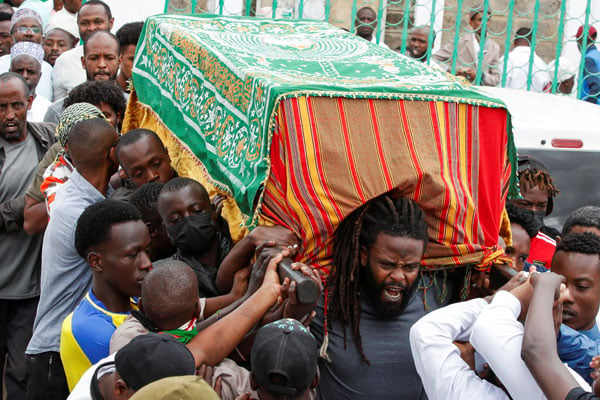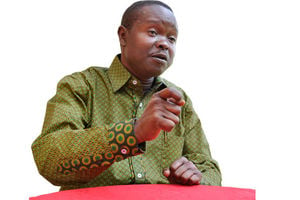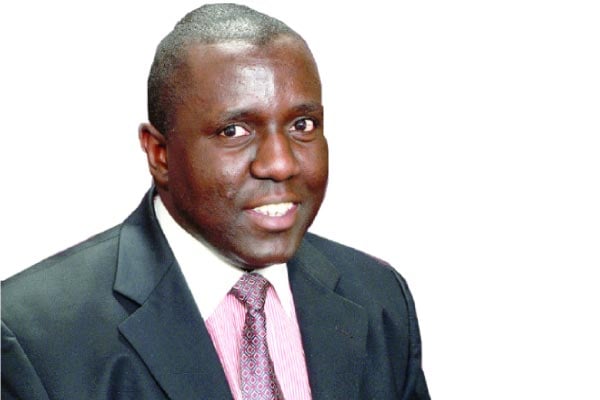
Mr Nicholas Sengoba
A week is a very long time in politics, so it is said. Just a few weeks ago the talk and some say the envy of the continent was Kenya’s fifth president, William Samoei Ruto. He was honoured with a State visit by the US administration of the 46th President Joe Biden. Ruto famously sat in the President’s chair in the Oval Office at White House. He smiled from ear to ear like a schoolboy who had been allowed to settle himself in his father’s chair, on a ‘bring your family to the office day.’ It was later announced that USA had designated Kenya as a Non-Nato ally. There after Ruto arrived in Kenya and announced the clinching of several ‘lucrative deals’ with the US worth hundreds of millions of dollars that would shore up the Kenyan economy with jobs and incomes.
Two weeks ago, the table started shaking. Many people, especially the youth took to social media protesting the proposed high taxes in the Finance Bill 2024. They loudly demanded on social media and on the streets that their MPs should not pass it as it.
The Parliament adamantly okayed it and the young people, aka Gen Z, hit the roof and took to the streets. They kept their promise to oppose the Bill; hook, line and sinker. They demonstrated with a vengeance which saw widespread looting, arson, and vandalism that did not spare the National Assembly building and the homes of some lawmakers, whom they scattered in the chambers, leaving them scampering for their lives. A few were injured while others were shot dead by the police. The army is now on the streets to keep the peace. President Ruto feeling the heat, conceded and declined to sign the Finance Bill into law. That has not pacified the young people. In fact it has invigorated them. They are now filled with gusto like the boxer who staggers his opponent with a blow and then moves in quickly to finish him off.
There are now calls for Ruto to leave office lest they march onto State House and help him pack his bags.
He will be pleased to hold on much longer. In the controversial, August 2022 election Ruto just scraped through with a slim win of about 200,000 votes better than his rival Raila Amolo Odinga, leaving many aggrieved. What it implies is that about one half of the electorate did not vote for him and have been out there waiting to visit comeuppance on him.
The other half which presumably voted for him bought into the idea that he was a self-made hustler like them who came from nowhere. He would hold their hands and show them how to pull themselves out of the sludge like he did. There was a litany of promises to boot, including interest-free loans and revolving funds, aka ‘the hustlers fund.’ But like it is said, a politician’s promise is more brittle than a lover’s oath. Ruto is behind on his promises. In so doing he is swelling the army of opponents against him. It has not helped that Kenya’s endemic problem of corruption with impunity still rears its ugly head. The hustler is now deep in a maze from which he is apparently only trying to extricate himself by explanation rather than the immediate existential actions which many Kenyans need to put bread on the table.
The trouble is that Kenya’s major problem is the same in most parts of Africa. It is highly indebted. United Nations Conference on Trade and Development (UNCTAD) notes that, “…in 2022, public debt in Africa reached $1.8 trillion. Africa’s debt has increased by 183 percent since 2010, a rate roughly four times higher than its growth rate of GDP in dollar terms.” Most African countries spend between 10 to 30 percent of their GDP on debt servicing and repayment. It is now costlier to finance the debt and for many countries the solution is to borrow to pay the debts. This is not sustainable.
Kenya has a debt to GDP ratio of about 68 percent. It owes lenders about $80 billion, which to be fair was not borrowed by the two-year-old Ruto regime. But as is said in Shakespeare’s Henry IV, Part 2, “uneasy lies the head that wears a crown.” It now costs about half of the annual tax revenue of $7.5 billion; -which the people have violently rejected, to service this debt. That is about $61 cents for every dollar collected in taxes. The lenders like the young, energetic and unemployed, hungry youth on the Kenyan streets will also not wait or take excuses. They want their money because they are into lending as a business, not charity.
That leaves Ruto between a rock and a very hard place yet he does not have the luxury of time. Neither are resources and solutions. By the time a government sees salvation in taxes on sanitary pads, cooking oil, bread, mobile money transactions and ridiculously on old cars on the roads for which people had paid taxes at importation, it is already on the wall and has nowhere to turn to. The only hope for Ruto now is to cut down on largesse and unnecessary expenditure. The proposed offices of Chief Administrative Secretaries and the offices of the First Lady and the Spouse of the Vice President fall in this category. So does travel abroad with huge delegations and donations. But this will affect the building of a hustler dynasty using state resources for it is one of the avenues of buying support. Scaling back on social services like health and education means that the people who do not have adequate income or income at all are left out in the cold and brings them back to the streets. The other is take corruption head-on. But that too is won’t be easy. The African state is built on patronage which is fed majorly by corruption. It has become so endemic and entrenched that is very difficult to find anyone to help a head of state to uproot the vice. Corruption grants most politicians, patronage and power over the masses as they use some of it to act as the social safety net and in doing so, buy back support.
To succeed, Ruto must be ready for rebellion within his ranks, which will overflow his plate; one which is already beyond full. Yet in waiting are those who were aggrieved in 2022.
It is possible that they will fund a significant part of the protestors to stay on the streets and keep Ruto busy with unrealistic demands. They may also emulate the ones in Egypt who allegedly sponsored the police to go slow on crime and protestors and create an impression that the Muslim Brotherhood government of Mohammed Morsi was inept, which justified the military takeover in 2013. In Kenya extended violence and instability would scare the business community and investors into supporting an alternative to Ruto.
Even for a battle-hardened hustler, these are difficult times.
Twitter: @nsengoba




